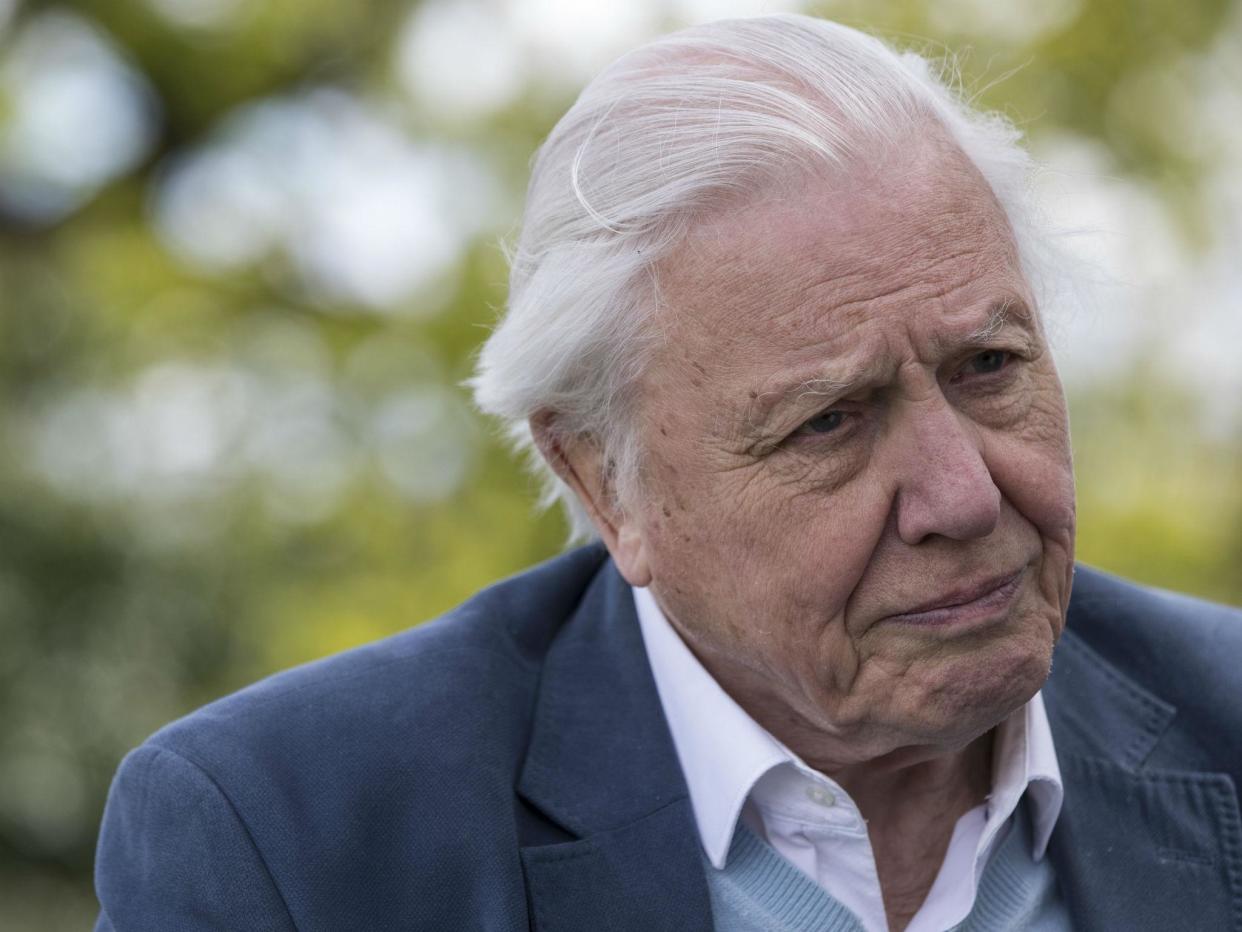David Attenborough says Brexiteers are spitting in the faces of Europeans

Sir David Attenborough has expressed dismay at the Brexit referendum vote, saying he would rather people "embrace one another than spat in one another's face".
In an interview with Greenpeace’s Unearthed website, Sir David also attacked the idea – put forward by Michael Gove, the current Environment Secretary, during the Brexit debate – that the public have "had enough of experts". He criticised the decision to put leaving the European Union to a referendum because people had not been given “the facts".
Denial of facts about climate change was also proving to be a problem, just as it had during the smoking debate in the 1950s when "evil men" covered up the truth about the link to cancer, Sir David said.
Asked about the trend to dismiss hard evidence, he paraphrased Mr Gove’s remark when asked about expert assessments that Brexit would damage the UK economy. “‘We’ve had quite enough of experts’. That's a cry from somebody who doesn't understand what they're saying – that's what that means,” Sir David said. "That's when someone has told them something which they don't like, and which they probably don't understand.
“That is not evil necessarily. There’s quite a lot I don't understand and quite a lot of people I don’t like, in those terms anyway. It's a knee-jerk kind of thing but it doesn't bear examination for a microsecond.”
The 91-year-old broadcaster’s opposition to Brexit was not based on economics but relations between people.
“I’m not an economist, I certainly don’t understand the political and economic implications of Brexit … but philosophically I would rather the people embrace one another than spat in one another’s face,” he said.
And he added: “The decision to call a referendum was an abrogation of parliamentary democracy in my view because we didn’t know the facts. We weren’t presented with the facts. I still don’t know the facts really!
“In any case it was only within a few percentage one way or the other – and if the ref had been two-thirds against one-third, that would have been bad enough. But it wasn’t even that.”
He spoke out despite a general reluctance to talk about politics. “Why am I going on about this? I’m not a political chap; I know about bugs,” he said.
On efforts to convince climate science deniers of the need to reduce greenhouse gas emissions, he expressed optimism that the tide was turning. “It’s a free world and we aren’t thought dictators. All we have to do is go along declaring the facts as we see the facts and producing the evidence whenever we can,” he said.
“The trouble is there are a lot of vested interests and a lot of people who it suits to deny it. It’s what happened in the smoking debates in the 1950s. I think there were evil men, I certainly think that – I think there were people who really knew and denied it – but there were quite a lot who didn’t. And I think there are probably plenty of people now who think ‘Well it’s not really true about carbon dioxide’.
“But all we can do, all anybody can do is go on stacking up the evidence from every quarter.
“My hope is that the world is coming to its senses … I’m so old I remember a time when … we didn’t talk about climate change, we talked about animals and species extermination.
“For the first time I’m beginning to think there is actually a groundswell, there is a change in the public view. I feel many more people are more concerned and more aware of what the problems are. Young people – people who’ve got 50 years of their life ahead of them – they are thinking they ought to be doing something about this – that’s a huge change.”

 Yahoo News
Yahoo News 
